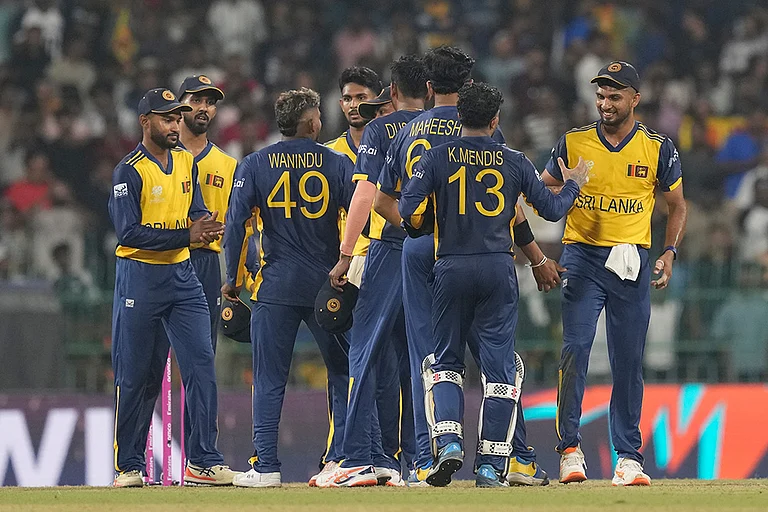The latest decision in the pipeline is the UK’s National Health Services negotiating with Indian medical institutions to treat British patients in India. This cannot be left merely to the NHS and a few private medical organisations in India. There are larger issues involved that need detailed discussions. The issues range from the macro to the micro, from globalisation to overcrowding in Indian hospitals. Bureaucrats, experts, NGOs must have a say as it impacts ordinary Indians too. The purpose of discussion is not to obstruct, but to ensure an equitable decision is taken in the larger public interest and to ensure that the privileged few—be they Indian or British—do not profit at public expense.
As with every decision, there are pros and cons. A few Indian doctors and hospitals will certainly profit. But the cons are far many too to ignore. As it is, our high-quality hospitals are overcrowded with Indian patients. A waiting list already exists, which of course the privileged short-circuit using connections. So allowing British patients to use our facilities could further clog our hospitals, deny beds to Indian patients. That’s clearly unacceptable. But it can happen. Remember the money-spinning Apollo hospitals, controversy-ridden over not treating enough poor patients as it is mandated to do.
One can see why sending patients to India is an easy, cheap option for the British. Even including airfare, the total expense would be much cheaper. Our doctors and nurses are inexpensive by world standards, and extremely competent at that. Also some of our private hospitals, for instance the Escorts Hospital in New Delhi, are world-class. On the other hand, Britain’s National Health Service (NHS) is overburdened. Waiting lists for even routine operations like cataract run into months. The best option for Britain would be to reform their NHS, upgrade hospitals and import more doctors and nurses. But that they don’t want to do. Money is always a constraint and immigration is now a touchy political issue. It appears the British government and public want to have their cake and eat it too— they want good medical service, but don’t want to foot the social and political cost of importing labour. So if doctors cannot or should not come to the patients, the patients must go to the doctors. So go abroad. Not only the British, but even Scandinavians who find themselves stuck at the rear end of interminable waiting lists, are increasingly going to France and Germany for surgeries and other serious medical interventions. India can be even more attractive—it’s further, but still cheaper.
To buttress their argument with moral ballast, British authorities sanctimoniously claim that by bringing their patients to India, they are averting brain drain. India’s problem is not brain drain but excess brain and brawn. As much as the West needs new markets to sell their goods, India needs new markets to absorb her labour. Excess labour and consequentially, unemployment, is our problem. wto negotiations have shown how hypocritical western nations are. They squeeze developing countries to drop subsidies and open markets, while they retain their subsidies and close their markets to foreign goods. In no field is this more blatant than agriculture, where western nations continue with huge farm subsidies while at the time same blocking their markets to agricultural produce from developing countries. The West is almost diabolical in the way they not only exploit the inadequacies of poorer nations, but add a moral halo to boot. They pretend they are being charitable in giving aid when in reality it is often to help Third World nations buy their own products or services. Economists have shown how trade and not aid is what really helps developing countries to prosper. Halving the West’s protectionist barriers could boost developing country incomes by $150 billion a year, three times what is currently given in aid.
But one can argue that India invests heavily in training professionals and it is a heavy drain when they leave our shores. This is true but perhaps there is a solution. We have no dearth of students. More top-notch educational institutions could be established with or without foreign investment in smaller towns to ensure growth and spread of ancillary industries. Some of these students may emigrate, but many will remain. Another option is to outsource diagnostic facilities in India, maybe even get foreign institutions to invest in upgrading our government hospitals in a few, select smaller towns (with airports) to avoid overcrowding in metropolitan cities. A certain number of beds in these hospitals could then be reserved for foreign patients. This could be a win-win for them and for us because the upgradation would attract better staff, ease congestion from big cities and provide better medicare to Indians living in the region.
We live in a changing world that constantly throws up new challenges. The clever thing to do is to convert these into opportunities. There is no wisdom in being blindly obstructionist or rapaciously greedy. Coming up with creative solutions is what we need most. We shouldn’t be diffident about extracting maximum mileage out of our inherent strengths so that more Indians can benefit, so that the nation as a whole develops in a more even-handed manner than the current lopsided growth concentrated entirely in a few big cities, in a few geographical zones. A creative approach could simultaneously cure many maladies.
(The author can be reached at post@anitapratap.com)


























